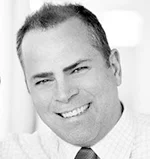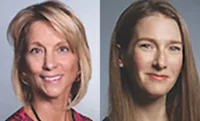 Lisa Arledge Powell Lisa Arledge Powell |
Healthcare communicators who understand what’s happening in the journalism industry, who adapt to changes in the media and search for new ways to add value, will always come out ahead.
Like many of us, my experience in communications started well before my dive into public relations. I’m a journalism lover at heart and started my career in broadcast news, where I fell in love with storytelling. It’s also where I gained the journalist perspective.
Today, I work alongside journalists in my role as the Founder and President of MediaSource, a healthcare public relations agency that helps healthcare organizations elevate their reputation and boost their bottom line. My goal has remained the same over the decades: Tell stories that promote science and medicine, research and boost reputation. That means riding the continuous waves of change that characterize the journalism industry.
For more than three years, journalists and communicators found common ground during the pandemic. Unprecedented levels of stress, burnout and job instability shook the nation. The toll it took created a sense of uncertainty, especially among those close to the epicenter, including healthcare journalists and communicators. Through our shared concerns, we worked together to keep the public informed and educated. Back then, journalists needed us as much as we needed them.
| This article is featured in O'Dwyer's October '23 Healthcare & Medical PR Magazine (view PDF version) |
But today, in 2023, we’re in a different place. Times are changing and so are the needs of journalists. The “2023 Health Care Journalist & Communicators Survey,” conducted by my team at MediaSource, highlights a disconnect in today’s media environment between communicators and journalists about the topics they want to cover.
Journalists have issues that they need to report on, and some of those are topics we may not want to talk about as healthcare brands. The media reported high interest in covering politically-coded health stories, including reproductive health (45 percent), gun control and mass casualty events (43 percent) and gender-affirming care (25 percent).
While in many cases journalists are seeking sources to provide an evidence-based perspective, this is still a difficult position for health communicators. In fact, many of these political topics were among the top issues that communicators said their leadership would find difficult to talk about externally with the number one off-limits topic being reproductive health.
Most health organizations are primarily focused on providing care, wellness and education to patients and their families. A political issue that distracts from this focus may put the organization in a negative light in the eyes of patients, staff or other stakeholders and could lead to a loss of trust.
The lack of interest in addressing some of today’s challenging issues can put a strain on the communicator-journalist relationship. If communicators are consistently unable to connect journalists with sources for these topics, it could make getting coverage of a healthcare organization’s key topics more difficult.
However, there are ways for communicators to elevate their brand’s stories and experts and meet the needs of journalists without stepping into a political minefield.
Promote your solution
While no healthcare brand wants to discuss the problems they may face in challenging areas such as healthcare costs or access to care, if your organization has a solution to a challenging political topic, consider proactively seeking media coverage built around your solution. Before approaching the media, create a roadmap of your ideal story so that you have a guide for working with the journalist. Provide the media with data that showcases your success.
Tout your expert
If your organization feels confident speaking about a challenging issue, a compelling thought leader can bridge the gap by connecting your leadership and point of view to the deeper issues impacting the healthcare industry. For these hot-button stories, it’s more important than ever to have a media-trained expert who’s educated on your organization’s message and who understands how to redirect a conversation with a reporter.
Know when to say no
When you encounter a media request that you simply can’t accommodate, you should decline the opportunity as quickly as possible. This shows respect for journalists, allowing them adequate time to look for other sources.
Now here’s the good news. Many of the issues that journalists said they want to cover aren’t politically charged. The top five topics that healthcare journalists said they want to cover today include mental health, the cost of healthcare, access to care, feel-good health stories and equity in healthcare. This provides an opportunity if your key products and services align with topics that journalists want to cover.
Communicators and journalists also share common ground in their desire to improve diversity, equity and inclusion in storytelling. How are communicators doing in providing journalists the diversity that they need?
In the report, 55 percent of journalists said PR professionals are supportive partners in telling diverse stories. However, 30 percent think communicators can do a better job in this space in terms of offering more diverse spokespeople, story topics and expert opinions.
The communications industry is making strides to change the decades-long neglect of these perspectives, and we continue to look within our organizations with renewed perspective to find ways to tell these stories. Promoting diversity and inclusion through storytelling is—and will continue to be—an opportunity for communicators in 2024 and beyond.
What we can take away from the “2023 Health Care Journalist & Communicators Survey” is that while there’s opportunity for communicators to be part of stories that their institution seeks to promote, there’s a good chance you’ll be asked to join the conversation on some less desirable topics. Therefore, you’ll need to have a strategy in advance for when and how you will respond.
If you’re interested in reading more findings from the survey, such as the state of journalism, content creation, the healthcare communications industry and more, you can download the free report here.
***
Lisa Arledge Powell is the President and Founder of MediaSource, an award-winning communications agency that specializes in helping healthcare brands reach their business goals through strategic communications.


 Lo Isidro, senior director at Real Chemistry with more than a decade of strategic communications and PA experience, has joined Narrative Strategies.
Lo Isidro, senior director at Real Chemistry with more than a decade of strategic communications and PA experience, has joined Narrative Strategies. Nelson Fernandez, former North American chair of APCO Worldwide and managing director of Burson-Marsteller, has joined Volunteers in Medicine Berkshires as director of communications and PA.
Nelson Fernandez, former North American chair of APCO Worldwide and managing director of Burson-Marsteller, has joined Volunteers in Medicine Berkshires as director of communications and PA. Lilit Bargar, who was most recently an EVP in the healthcare practice at Weber Shandwick, comes on board at GCI Health as EVP, corporate practice lead.
Lilit Bargar, who was most recently an EVP in the healthcare practice at Weber Shandwick, comes on board at GCI Health as EVP, corporate practice lead.
 Five ways that successful thought leaders are made.
Five ways that successful thought leaders are made.


 Have a comment? Send it to
Have a comment? Send it to 
No comments have been submitted for this story yet.